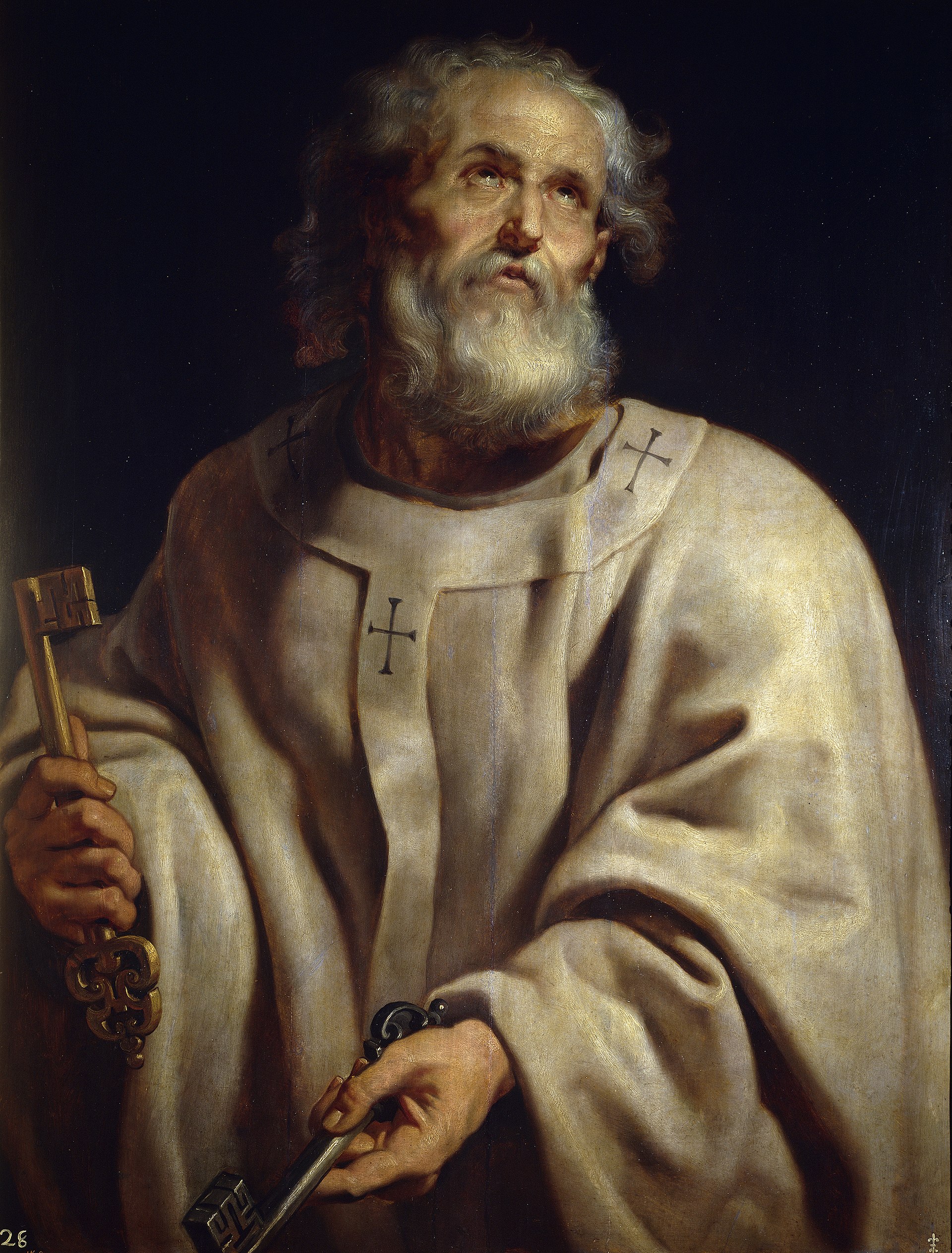Saints Saint Peter

Saint Peter, also known as Simon Peter, was one of the twelve apostles of Jesus Christ and the first pope of the Catholic Church. According to the New Testament, Peter was a fisherman from Bethsaida on the Sea of Galilee, and he was called to follow Jesus as one of his apostles.
Peter played a central role in the life and ministry of Jesus, and he is mentioned frequently in the Gospels. He was present at many of the significant events in Jesus' life, including the Transfiguration, the Last Supper, and the Crucifixion. After the death and resurrection of Jesus, Peter became a leader in the early Christian community and played a key role in the spread of Christianity.
One of the most famous stories about Peter in the New Testament is the story of his denial of Jesus. According to the Gospels, Peter denied knowing Jesus three times in the hours leading up to Jesus' Crucifixion. However, after the resurrection of Jesus, Peter repented and was reconciled with Jesus. Jesus then commissioned Peter to shepherd his flock and to be a witness to his resurrection.
In the Catholic Church, Peter is revered as a saint and a symbol of the papacy. According to Catholic tradition, Peter was the first pope and the leader of the early Christian community in Rome. The Catholic Church teaches that Jesus gave Peter the "keys to the kingdom of heaven" and that Peter was given the authority to bind and loose in heaven and on earth.
Throughout history, Peter has been honored by Catholics around the world as a model of faith and devotion. He is often depicted in art and literature as a strong and courageous leader, and his feast day is celebrated on June 29th. In the Catholic Church, Peter is considered the patron saint of fishermen and is invoked for his intercession in matters of faith and leadership.
He is mentioned frequently in the writings of the early Church fathers, and his life and ministry have had a significant impact on the development of Christianity.
Despite his many accomplishments and his central role in the history of Christianity, Peter was also a fallible human being. He made mistakes and struggled with his own weaknesses, but through his faith in Jesus and his willingness to repent and follow God, he became a powerful example of the transformative power of grace.
Today, Catholics around the world continue to look to Peter as a model of faith and devotion, and they seek his intercession and guidance in their own lives. Whether they are struggling with their own weaknesses and doubts, or seeking guidance and direction in their faith, Catholics turn to Peter as a powerful intercessor and a source of strength and inspiration.
Learn more about The Saints.